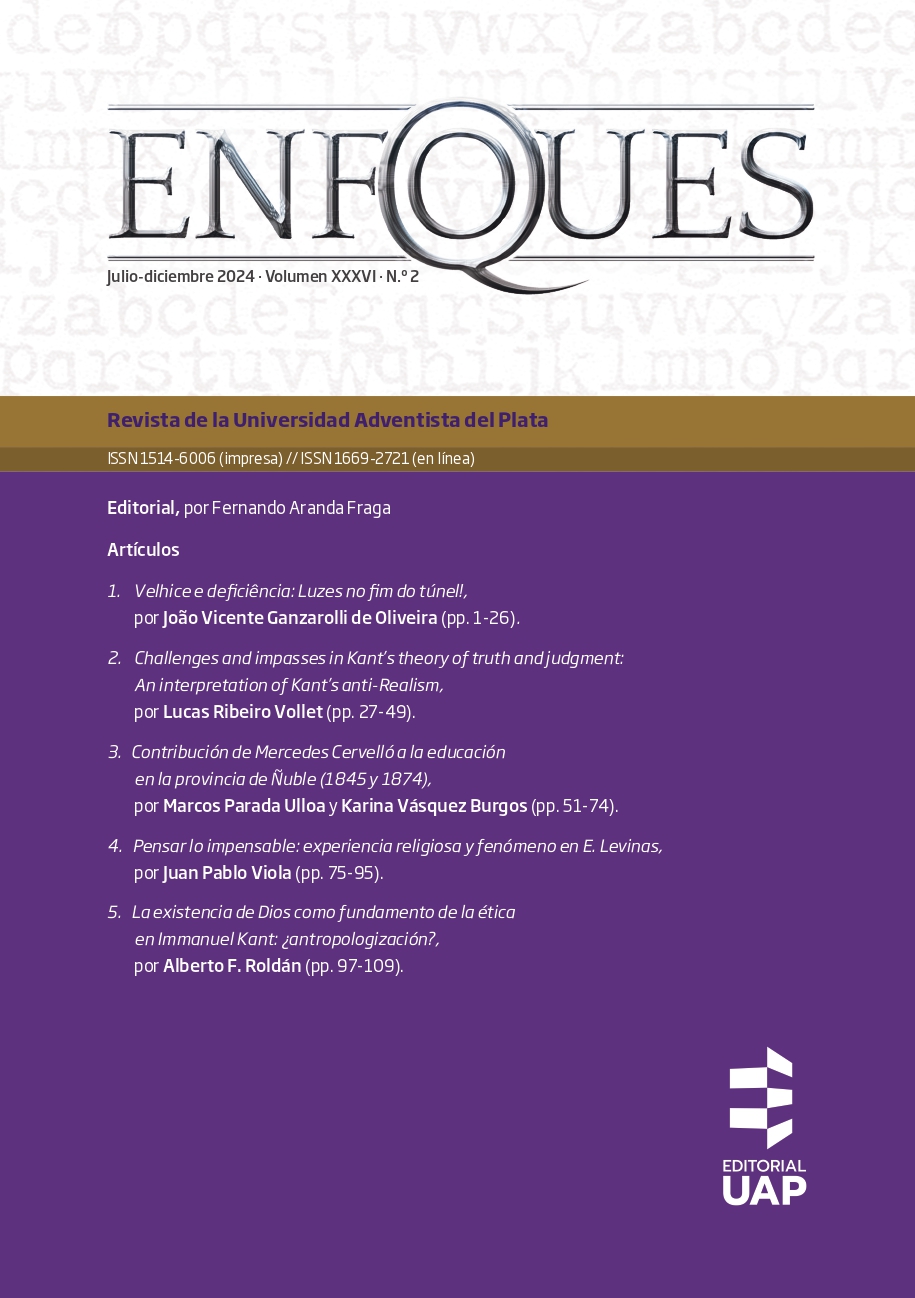The existence of God as foundation of ethics in Immanuel Kant: Anthropologization?
DOI:
https://doi.org/10.56487/enfoques.v36i2.1194Keywords:
Kant — God’s existence — Fundamentation — EthicsAbstract
In this article, Alberto F. Roldán analyses the existence of God as exposed by Immanuel Kant as foundation for ethics. The work is focused mainly in Critique of practical reason, groundwork of the metaphysics of morals and prolegomena to any future metaphysics. The central themes of the analysis of the author lies in the manner in which Kant argues the importance of the postulate of the existence of God as the only possible foundation of ethics whose central elements are morality and happiness, for the purpose of reaching the supreme good, that the German philosopher identifies with the kingdom of God. In his evaluation of the Kantian proposal, the author admits that although Kant affirms the existence of God, that emphasis pertains only to the field of morality, since God, liberty and immortality have no objective reality and can only be proposed as necessary from practical reason. In his conclusions, Roldán recognizes the effort of Kant to affirm the existence of God, although the German philosopher says that no firm and solid statements can be made about God. The conclusion is that Kant, in his metaphysical approach, reduces God to a mere practical, ethical and individual concept, and in that way, derives in an anthropologization of God.Downloads
Download data is not yet available.
Downloads
Published
2024-12-30
Issue
Section
Articles
License

This work is licensed under a Creative Commons Attribution-NonCommercial-ShareAlike 4.0 International License.




